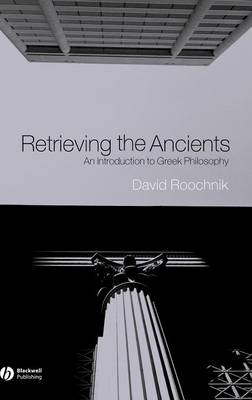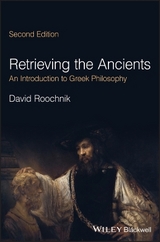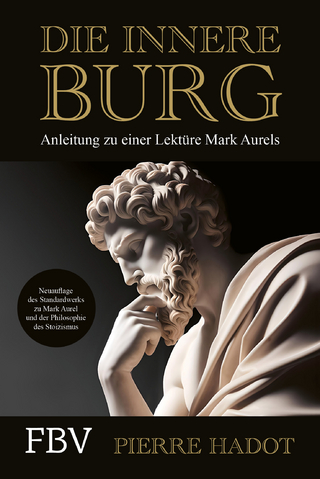
Retrieving the Ancients – An Introduction to Greek Philosophy
Blackwell Publishing Ltd (Verlag)
978-1-4051-0861-4 (ISBN)
- Titel erscheint in neuer Auflage
- Artikel merken
Retrieving the Ancients tells the story of the first philosophers in the West. * A clear and engaging introduction to ancient Greek philosophy. * Tells the story of the first philosophers in the West, from Thales to Aristotle. * Has a strong sense of narrative drive. * Treats the history of ancient Greek philosophy dialectically, as a conversation in which each thinker responds to and moves beyond his predecessors. * Argues that the works of the ancients are as valuable today as ever.
David Roochnik is Associate Professor of Philosophy at Boston University. His previous publications Of Art and Wisdom: Plato's Understanding of Techne (1996) and Beautiful City: The Dialectical Character of Plato's Republic (2003). In addition to his scholarly work in the field of ancient Greek philosophy, he has also published a short story and has recently completed a novel.
Introduction. Two Reasons to Study Ancient Greek Philosophy. The Organization and Strategy of This Book. 1: The Presocratics. Preliminaries. Before the Beginning: Hesiod. The Ionian Philosophers of the Sixth Century. a) The Beginning: Thales of Miletus. b) The First Debate: Anaximander v. Anaximenes. c) Sixth--Century Rationalism: Xenophanes and Pythagoras. d) The Crisis of Sixth--Century Philosophy. Heraclitus and Parmenides: Extreme Solutions. a) Heraclitus: Lover of Flux. b) Parmenides: Champion of Being. Fifth--Century Elementalism. a) Democritus: Atomic Theory. b) Empedocles: Evolution. c) Anaxagoras. 2: The Sophists and Socrates. A New Beginning: The Sophists. Protagoras. Gorgias. Socrates. 3: Plato. Preliminaries. Plato's Critique of the Presocratics. Plato's Critique of the Sophists. a) The "Self--Reference" Argument. b) The Reductio ad Absurdum. c) "What is it?". d) "The Old Quarrel:" Philosophy v. Sophistry. Recollection. a) The Phaedo. b) The Meno. The Divided Line and the Form of the Good. a) The Divided Line. b) The Form of the Good. Eros. The Political Implications of the Forms. 4: Aristotle. Preliminaries. Aristotle's Conception of Nature. a) "By Nature". b) Form and Matter. c) The Four Causes. Aristotle's Psychology. Teleological Ethics. a) Moral Virtue. b) Intellectual Virtue. Natural Politics. a) The Political Animal. b) Best Life; Best City. Conclusion. References. Index
| Erscheint lt. Verlag | 7.5.2004 |
|---|---|
| Verlagsort | Oxford |
| Sprache | englisch |
| Maße | 149 x 244 mm |
| Gewicht | 478 g |
| Themenwelt | Geisteswissenschaften ► Philosophie ► Philosophie Altertum / Antike |
| ISBN-10 | 1-4051-0861-4 / 1405108614 |
| ISBN-13 | 978-1-4051-0861-4 / 9781405108614 |
| Zustand | Neuware |
| Informationen gemäß Produktsicherheitsverordnung (GPSR) | |
| Haben Sie eine Frage zum Produkt? |
aus dem Bereich



